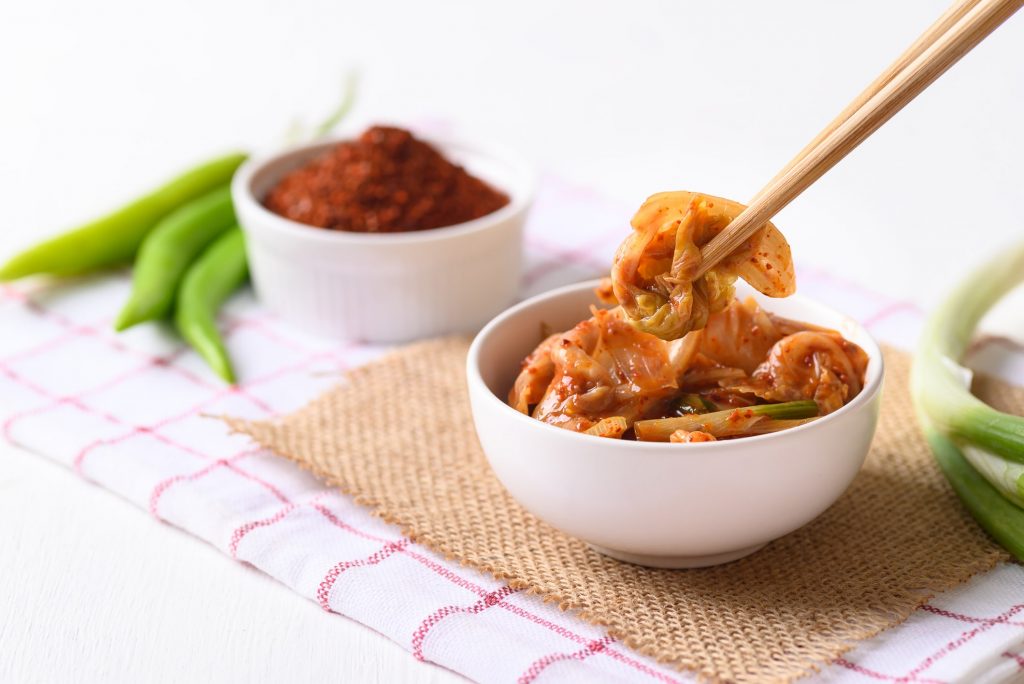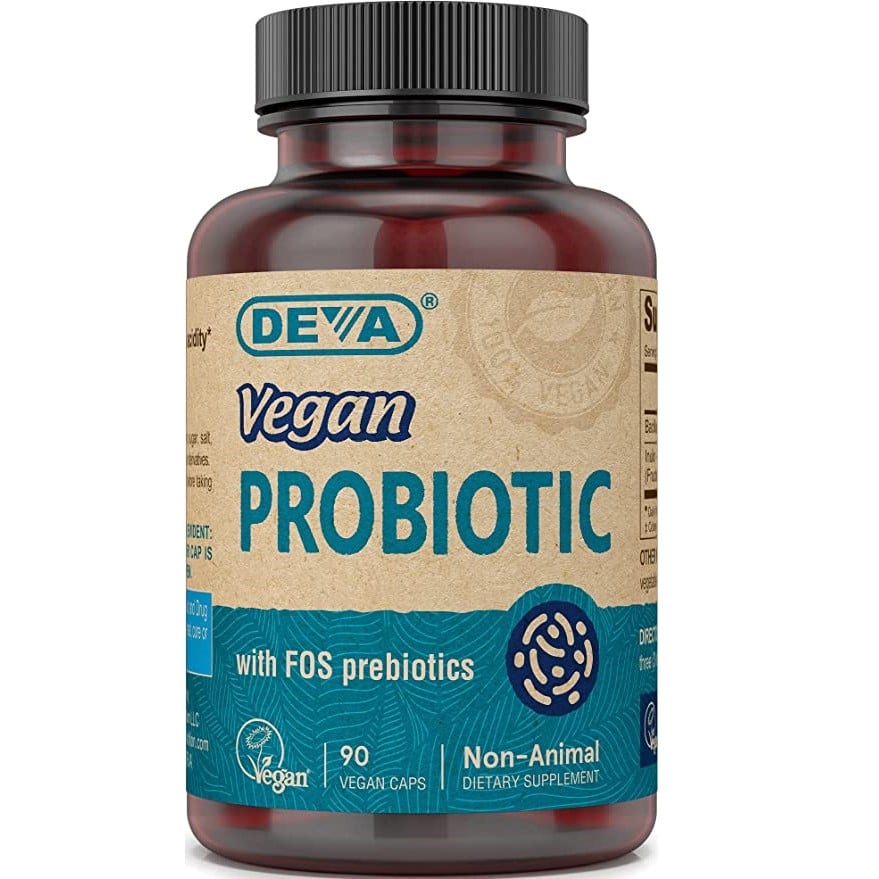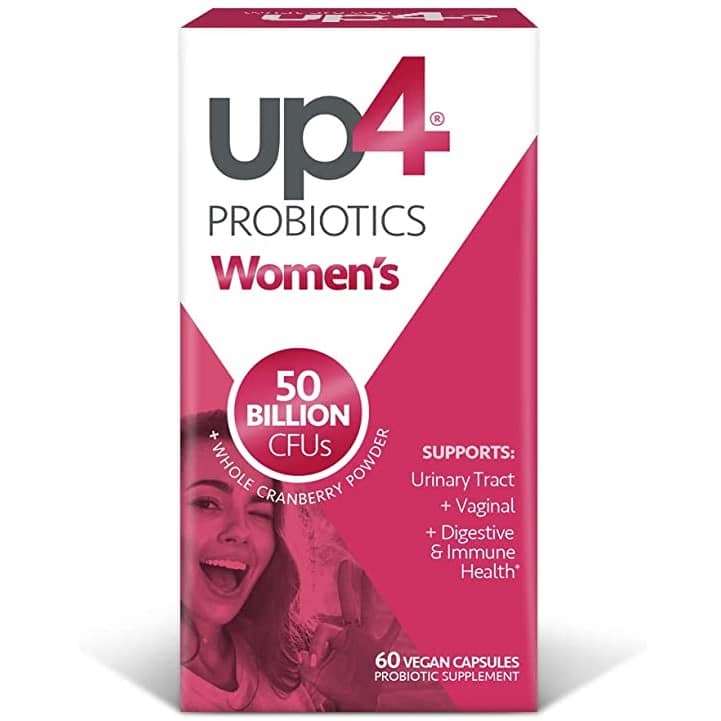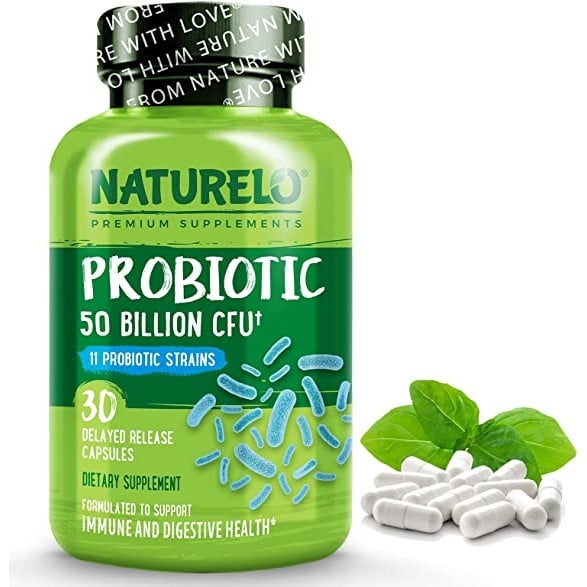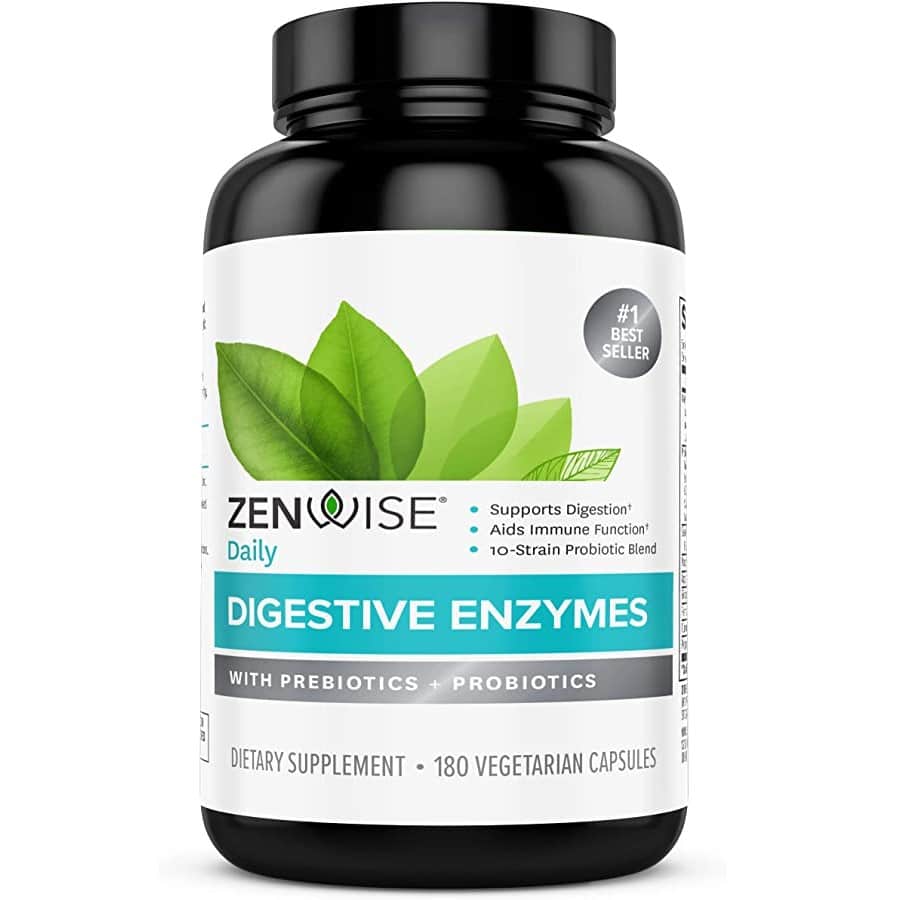Probiotics are live bacteria and yeasts that may have various health benefits, such as boosting your immune system and gut health.
These microorganisms can be found in fermented foods like kimchi, kombucha and kefir, added to processed food, or made into dietary supplements.
Unfortunately, many naturally probiotic foods use animal products, so we’re here to help you find the best vegan probiotic supplements to support a healthy, plant-based diet.
Probiotic foods have been around for thousands of years, but it wasn’t until the 20th century that scientists realised that bacteria had potential health benefits. In 1907, Russian scientist Elie Metchnikoff linked the long lifespan of people living in the Caucasus mountains to the daily consumption of fermented yogurt containing a probiotic he named Lactobacillus Bulgaricus.
Since then, probiotics have surged in popularity, thanks to interest in fermented foods (such as Korean
kimchi, Greek yogurt and Japanese miso) and an increasingly health-conscious population. However, while probiotics are increasingly popular, many contain animal products, so this article will help you find the best vegan probiotic supplements for your dietary needs.
Table of Contents
Best vegan probiotic supplements
As mentioned above, some of the most well-known sources of probiotics contain dairy, though there are lots of vegan probiotic foods and supplements to choose from. If you’re looking for a convenient way to support your digestive system and gut microbiome without compromising your vegan diet, these are the best probiotic supplements for you:
1. Deva Vegan Probiotic
These probiotics are registered vegan and are free of yeast, soy, gluten, dairy, egg, and fish, making them one of the best vegan probiotic supplements for people with food sensitivities.
What’s more, the cellulose capsules are easy to swallow and don’t require refrigeration, so you can take them on the go or stick them in your medicine cabinet without a care.
2. up4 Probiotics for Women
Designed to support the unique microflora in your digestive and urinary tracts with a whopping 50 billion CFU’s of a proprietary probiotic strain in each capsule, these probiotics are ideal for women looking to support their overall health.
In addition to the unique blend of 10 probiotic strains, these supplements are vegan, non-GMO, and gluten-free and contain whole cranberry powder for added antioxidant effects.
3. Naturelo Probiotic
These supplements are free of dairy, yeast, gluten, soy, GMOs, are stable at room temperature, and are enteric-coated to protect against stomach acid and deliver more live bacteria to your gut.
And when it comes to the CFU arms race, Naturelo’s offering may well be the best vegan probiotic supplements, as they contain a hefty 50 billion CFU from 11 probiotic strains in each capsule.
4. Zenwise Daily Digestive Enzymes
While most probiotics are designed to support a healthy digestive system, Zenwise’s supplements go further by blending various botanicals like turmeric, ginger, and fennel to support gut health and stomach comfort. According to the manufacturer, the end result is a product designed to soothe and support your digestive system with a unique blend of botanicals and probiotics that is non-GMO, allergen-free, and vegan.
NOTE: These supplements are certified Vegetarian by the American Vegetarian Association (AVA) but are not certified vegan at the time of writing.
Do Vegans Need Probiotic Supplements?
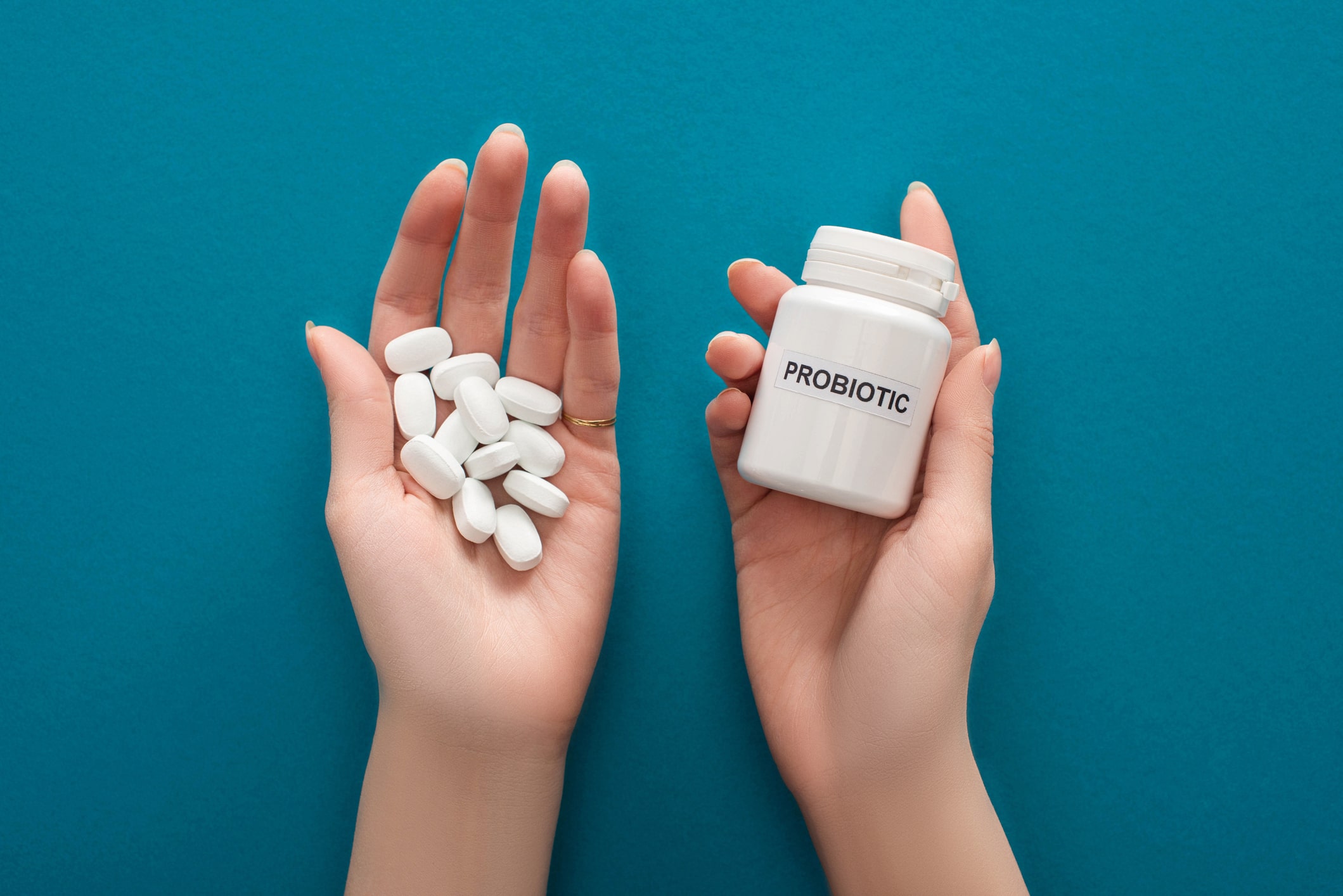
Bacteria is a vital part of your digestive system, and your gut is home to hundreds of species that help break down food, fight off infection and even regulate your appetite and mood.
Maintaining a healthy balance of gut bacteria is vital for your health, and one of the best ways to support a healthy digestive system is by eating a balanced diet with plenty of probiotics.
Unfortunately, vegan diets can be surprisingly unhealthy (fried potatoes are technically vegan!), and many plant-based foods are so heavily processed that they can harm the healthy bacteria in your gut.
As such, you should try to eat plenty of probiotic foods as part of a balanced, vegan diet, or take the best vegan probiotic supplements you can find.
Probiotic Foods Vs. Supplements
While dairy products like yoghurt, cheese, and kefir are the most well-known sources of probiotics, there are plenty of vegan options to choose from. However, many vegan probiotic foods (such as kimchi, sourdough bread, and kombucha) are difficult to find outside of specialist supermarkets or marketed as luxury items.
So, unless you want to pay hipster prices for bread or ferment your own food and drink, the best vegan probiotic supplements are the simplest way to get more probiotics in your routine.
What Are the Signs You Need Probiotics?
The terms “gut microbiome” or “gut flora” are often used to refer to the microorganisms living in your digestive tract, and any disruption to this ‘ecosystem’ can cause a variety of symptoms. If you notice any of the following signs, you could benefit from eating more probiotic foods or taking probiotic supplements:
1. Stomach Issues

Stomach issues like heartburn, gas, diarrhea and constipation could all be signs of an imbalanced gut microbiome, especially if they persist for more than one day. If you suffer from these symptoms, you should consider eating more whole foods or getting the best vegan probiotic supplements.
2. Sugar Cravings

Diets high in refined sugars (particularly High-Fructose Corn Syrup, or HFCS) are linked to increased inflammation, which is a major risk factor for various chronic diseases. Furthermore, diets high in processed foods and added sugars can harm your gut microbiome and cause increased sugar cravings, creating a vicious cycle.
3. Unintended Weight Loss/Gain

If you’re losing or gaining weight without changing your diet or exercise habits, it may be a sign of an unhealthy gut which is affecting your ability to absorb nutrients and store fat. If you start to lose or gain weight without an obvious cause, it may be caused by issues with your gut bacteria, so you should ask a doctor about the best vegan probiotic supplements for your needs.
4. Disturbed Sleep/Fatigue

Most of the body’s serotonin – a hormone that affects mood and sleep – is produced in your digestive system, so poor sleep or conditions like insomnia and fatigue could be caused by damage to your gut microbiome. However, it’s important to point out that various other lifestyle factors can cause sleep disorders, so eating more probiotic food may not be enough to cure your insomnia.
5. Irritated Skin
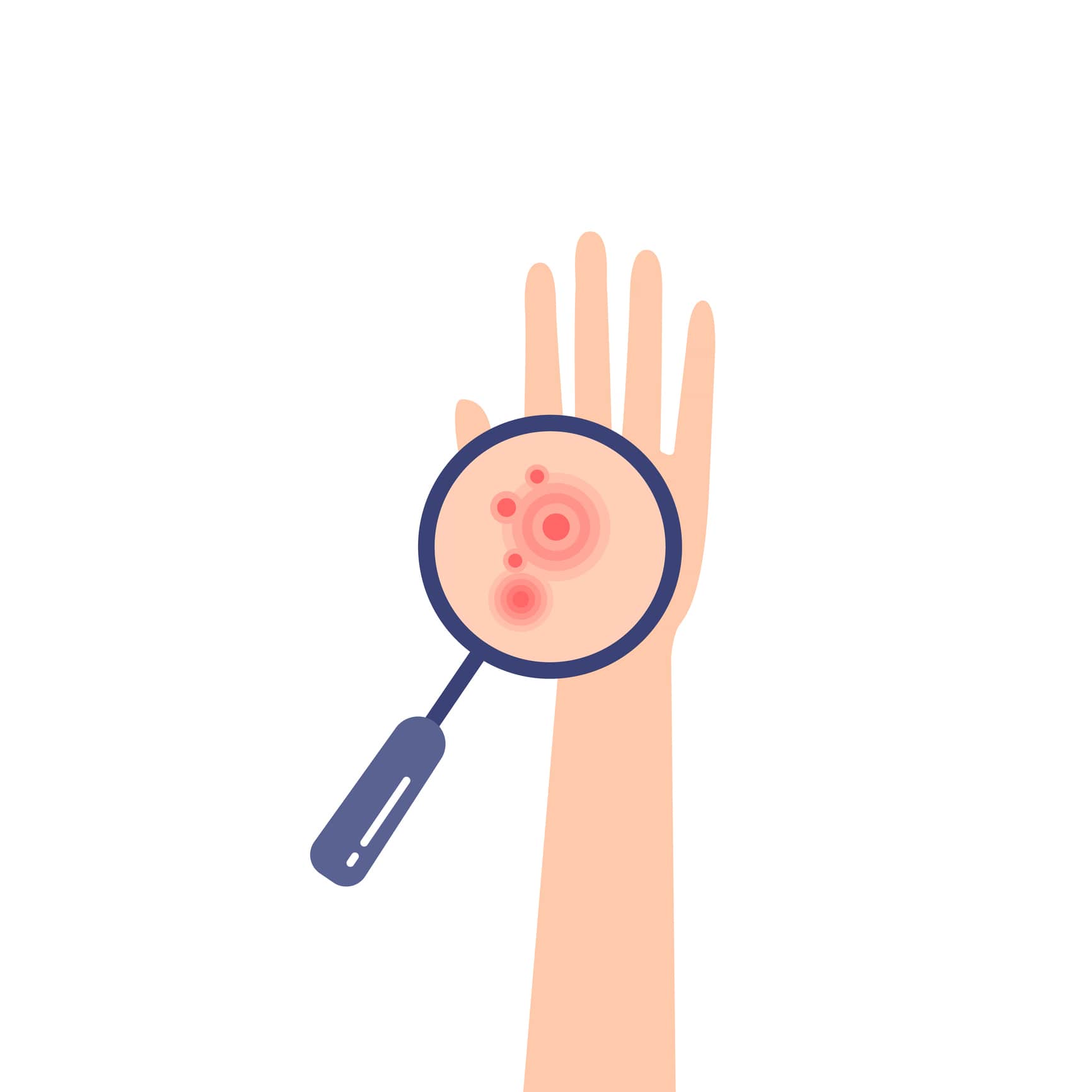
Certain skin conditions, such as eczema, may be linked to a damaged gut, as inflammation in the digestive system may cause certain proteins to ‘leak’ out into the body and cause skin irritation.
6. Autoimmune Diseases
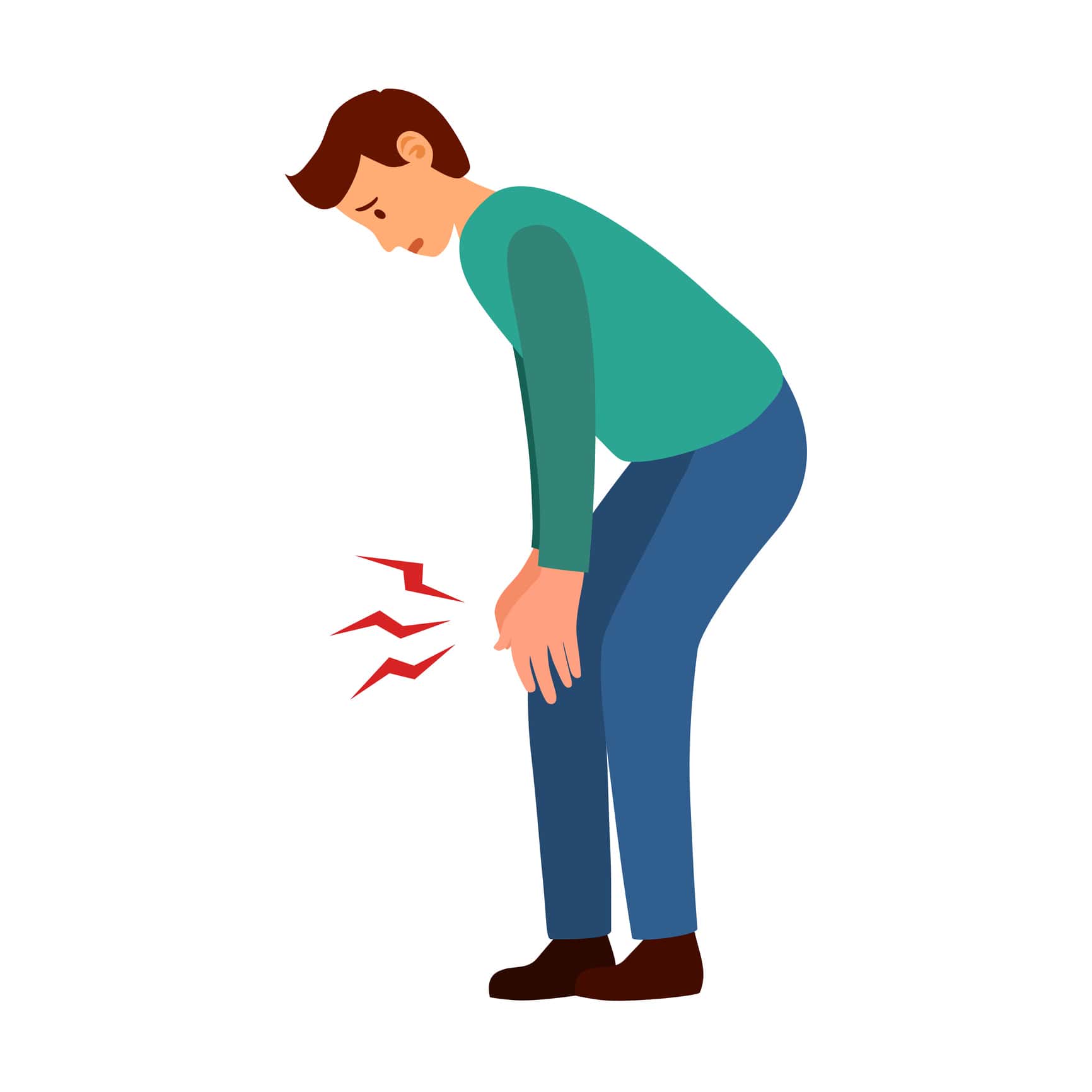
A growing amount of research shows that gut health is linked to your immune system, so taking the best vegan probiotic supplements may help you stay healthy and stave off disease, particularly autoimmune diseases, which are often caused by inflammation.
7. Food Intolerances

Food intolerances are caused by your body struggling to digest certain foods (such as dairy or gluten) and are distinct from food allergies, which are immune responses to foods. An imbalanced gut microbiome can make it harder to digest certain foods, causing food intolerances.
Probiotic Supplements Side Effects
When it comes to probiotics, there are tons to choose from, and you can even make your own vegan probiotic food and drink by fermenting tea to make kombucha or maturing a sourdough starter.
However, while the health benefits of probiotics are well-documented, even the best vegan probiotic supplements can cause some unwanted side effects – such as nausea or headaches – in certain people.
Fortunately, most of these side effects are minor and only affect a small percentage of people, so if you notice any of the following symptoms, it’s probably due to your new probiotics:
1. Digestive Symptoms

Although probiotic side effects are rare, they have been known to disrupt people’s digestive system and cause minor gas, bloating, or constipation. Typically, these side effects subside after a few weeks on probiotic supplements, and you can reduce your risk by starting with a lower dose, so it’s probably nothing to worry about.
2. Headaches

Some probiotics contain biogenic amines (formed when protein-containing foods age or ferment) which have been linked to headaches in a small percentage of people. Fortunately, many of the best vegan probiotic supplements are low in biogenic amines, so it’s very unlikely that they will increase the frequency or severity of your headaches.
3. Increased Histamine Levels
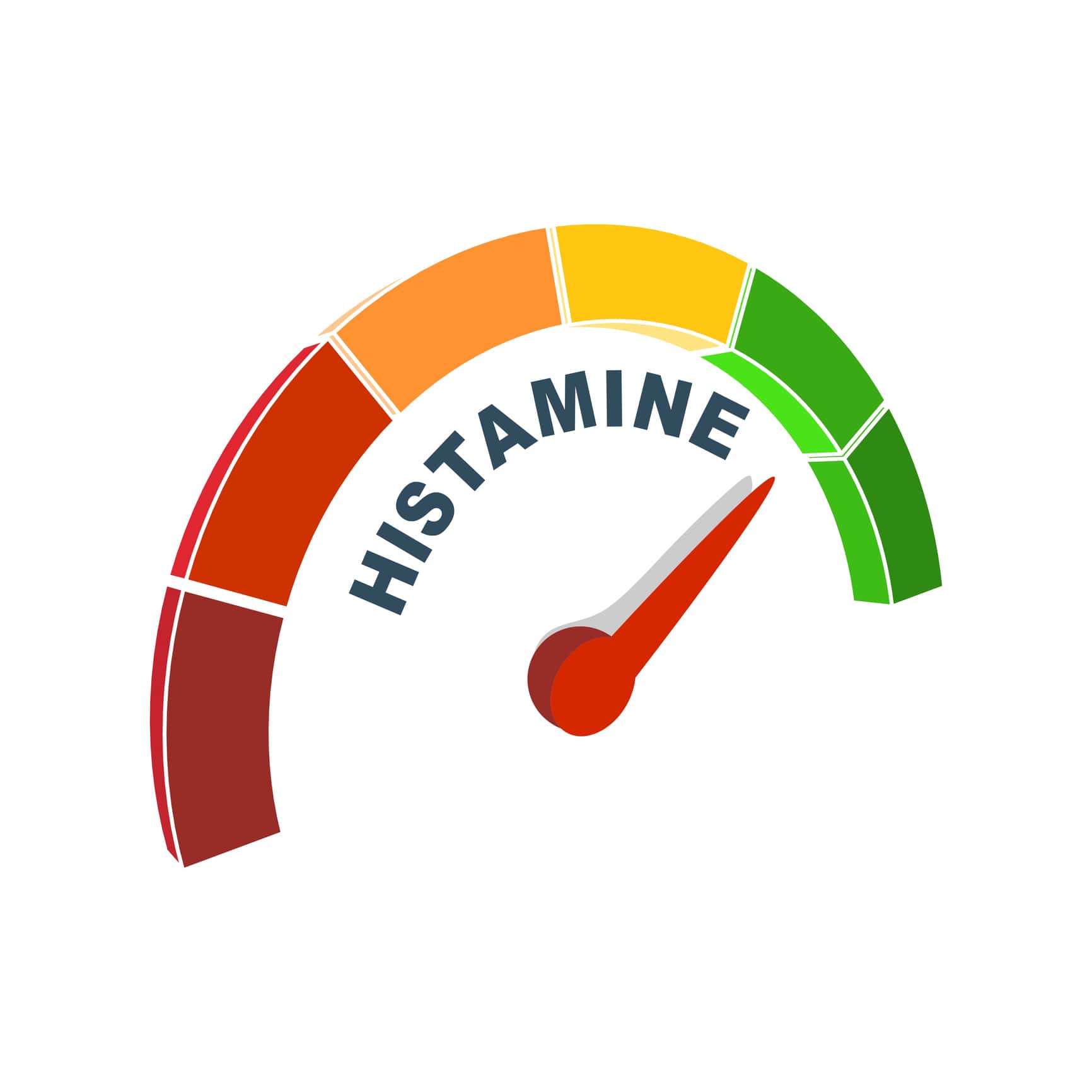
Certain bacterial strains used in supplements can produce histamine inside your digestive tract, potentially causing symptoms like an allergic reaction in people with histamine intolerances.
Histamine – which is normally produced by your immune system in response to threats such as allergens – can cause inflammation, though excess levels in the gut are usually degraded before they cause any noticeable damage.
4. Adverse Reactions

When searching for the best vegan probiotic supplements, you should always read the ingredients list, as many probiotics are derived from animal products or contain allergens like dairy or soy. Many probiotic supplements use yeast, soy, or lactose, so read the label carefully to avoid taking a non-vegan supplement or triggering your allergies by mistake.
5. Increased Risk of Infection

Probiotics are generally safe, but they have been linked to infections in rare cases when the yeast or bacteria in probiotic supplements enters the bloodstream and cause infections.
However, the risk of infection is extremely low (about 1 in a million for Lactobacilli bacteria and 1 in 5.6 million for yeast-based probiotics), and the infections are generally mild, so it’s nothing to worry about unless you’re susceptible to infections.
Do Probiotic Supplements Work
Supplement companies make all kinds of bold claims about their products, and many supporters of probiotics claim that they can strengthen your immune system, aid weight loss, and add years to your life! However, even the best vegan probiotic supplements struggle to live up to this hype, and research into their benefits is relatively new, so most of these claims are tough to confirm or deny.
However, studies have shown that probiotic supplements can improve Irritable Bowel Syndrome (IBS) and diarrhoea symptoms, making them effective as a medical treatment for these conditions.
What this means is that while you should try to eat probiotic foods as part of a balanced diet, probiotic supplements are unlikely to provide noticeable benefits unless they are recommended as a treatment for conditions affecting your stomach.
How to Choose Probiotic Supplements
There is currently no evidence that probiotic supplements benefit healthy people, but they are effective at treating specific complaints like IBS and diarrhoea. Depending on your specific complaint, you may find that certain strains are better for you, so we’ve created a little guide to help you choose the best vegan probiotic supplements for your needs.
If you have a condition that probiotics can help or have been prescribed probiotic supplements by a medical professional, keep these tips in mind when choosing a product:
Choose a Trustworthy Brand
The manufacturing process, shelf life, and formulation of a probiotic supplement can drastically affect their effectiveness, so always choose products from established, preferably certified brands, ideally recommended by your doctor.
Consider Different Probiotic Strains
Probiotics come in a wide variety of strains with different effects and interactions, so look for products that have the right strain(s) and dose for your needs. Most products will clearly state what symptoms they’re designed to treat, so it shouldn’t be too hard to find the best vegan probiotic supplements for your needs.
Make Sure it’s Potent Enough
Colony Forming Units (CFUs) are a unit of measurement used to estimate the number of bacterial cells in probiotic supplements, and higher CFU counts indicate more active bacteria. The average probiotic supplement has between 1 and 10 billion CFUs per serving, but more isn’t always better, as larger doses of bacteria can disrupt the balance of your gut microbiome and make your symptoms worse.
Vitamin B12
Essential for red blood cell formation and nerve function, Vitamin B12 (or cobalamin) is found in meat and dairy products, as well as some types of mushrooms. Vegetarians and vegans are at a higher risk of vitamin B12 deficiencies…
When to Take Probiotic Supplements
Some probiotic manufacturers recommend you take their supplements on an empty stomach, while others say you should take them with food, so is there a ‘right’ time to take your supplements?
As the goal of probiotic supplements is to deliver the beneficial bacteria to your large intestine where they do the most good, timing can play a big role in their effectiveness, even if you’re using the best vegan probiotic supplements.
However, one study found that probiotic supplements caused positive effects in the gut microbiome, regardless of timing after a month, so consistency seems to be more important than timing.
Certain bacterial strains – such as Bifidobacterium and Lactobacillus – survive best when taken right before a meal, while others benefit from an empty stomach, so you should read the label to find when is best to take your supplements or try and stay consistent at the very least.
Conclusion
Probiotic supplements can help people with conditions like IBS, constipation, or urinary tract infections, though they won’t give healthy people the same benefits. Furthermore, their effectiveness depends on the strain, dosage, and condition you’re trying to treat, so you should do careful research or get advice from a medical professional to find the right probiotic supplements for your needs.
However, the tips in this article will help you find the best vegan probiotic supplements for your needs, so you can enjoy all the benefits of a healthy gut microbiome on a vegan diet.
